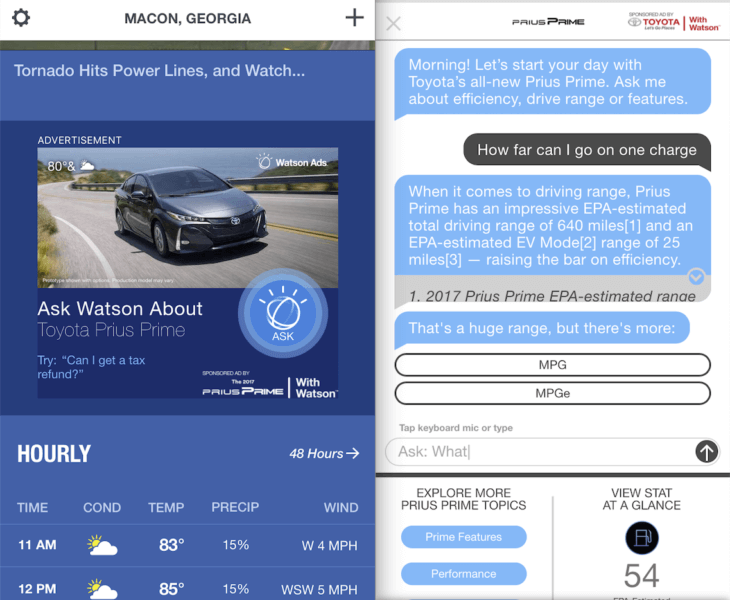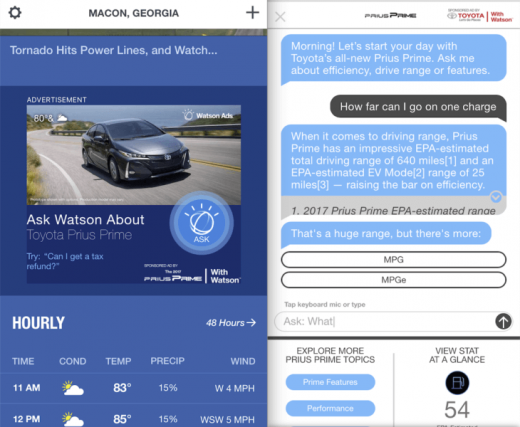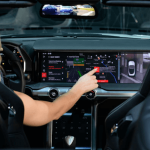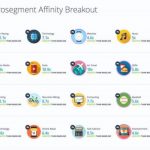Watson mans the first cognitive ad for cars
On the IBM-owned Weather.com site, the supercomputer is fielding questions about the Prius Prime like an expert.

Watson is adding to his repertoire of cognitive ads today on Weather.com, with the announcement of the first one for the auto industry.
Last October, the IBM-owned Weather Company launched the first such cognitive ad on its site, for Campbell Soup. In it, a site visitor could enter a few ingredients, and Watson — drawing on his experience as Chef Watson, where he has been trained to understand human food tastes — would return an original recipe using those ingredients.
Since then, another five Watson-powered cognitive ads have seen the light of day, for Country Crock, Swanson, Hellman’s, Theraflu and Flonase.
The newest ad, for Toyota’s Prius Prime, allows viewers to engage in one-to-one conversation with the brand, enabled by Watson’s subject matter expertise on the topic.
Similar to his prep for other endeavors, Watson has been trained about the Prius Prime by ingesting content about the topic, including FAQs, digital brochures, videos and conversational topics. His answers can include relevant videos as well as text or links, and users can ask questions in an open text field or via voice through a computer’s or a mobile device’s mike.

You can see examples of the new Watson-powered Prius Prime ad at the bottom of the page at Watsonads.com. The Prius ads’ appearance on Weather.com is not on any particular schedule.
Of course, many brands are interacting these days with customers and would-be customers via chatbots, some of whom also learn over time via machine learning.
But Monica Fogg, product marketing lead for Watson Ads, told me that Watson provides a higher level of subject matter expertise than do chatbots, covering both structured and unstructured data.
She said that he is becoming an expert in several areas of interest to consumer brands, such as food, some over-the-counter medicines like Flonase, and now cars.
If an entered question or user response is off-topic, or if Watson is stumped, he steers the conversation back to the subject at hand. And, if there’s a question he can’t answer, his trainers will see the gap in his records and will feed him appropriate training content.
Other chatbots’ failure rate, Fogg said, can be as high as 70 to 80 percent of the time, when they can’t adequately respond to a user. By contrast, she said, Watson’s is about 1 percent.
And, although the Prius ad is too new for stats, previous Watson cognitive ads have generated user participation generally lasting one to two minutes, on average.
While that kind of brand involvement can be valuable to an advertiser, Fogg noted that the questions and responses from consumers constitute what is essentially “a massive focus group” about what interests or confuses them about the Prius.
Marketing Land – Internet Marketing News, Strategies & Tips
(39)














